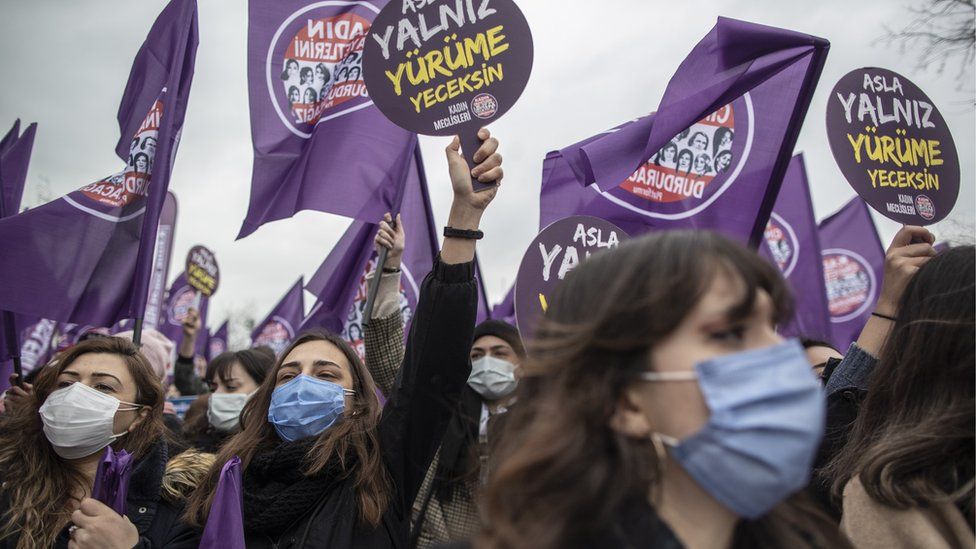Turkey should reverse its withdrawal from the Council of Europe’s Convention on preventing and combating violence against women and domestic violence (the “Istanbul Convention”), the International Commission of Jurists (ICJ) said today.
The Turkish government’s withdrawal from the Istanbul Convention enters into force today, 1 July 2021.
“Turkey’s withdrawal from the Istanbul Convention will deprive women and girls of the benefits of a vital, comprehensive legal framework to protect them from all forms of violence, and prevent, prosecute and eliminate violence against them, including domestic violence,” said Massimo Frigo, ICJ Senior Legal Adviser for its Europe and Central Asia Programme. “Moreover, this decision denies women and girls in Turkey access to the Group of experts on action against violence against women and domestic violence – the specific monitoring and accountability mechanism established under the Convention.”
“Paradoxically, as recently as last year, Turkey invoked its ratification of the Istanbul Convention to show progress on women’s human rights during its 2020 Universal Periodic Review by the UN Human Rights Council. Turkey’s decision to withdraw from the Convention totally contradicts that stance,” said Frigo. “We call on the Government of Turkey to reverse its decision to withdraw from the Istanbul Convention.”
Background
On 20 March 2021, Recep Tayyip Erdogan, Turkey’s President, announced the country’s withdrawal from the Istanbul Convention by presidential decree – a procedure many experts in Turkey have criticized as unconstitutional. The government justified its decision with spurious claims that the Istanbul Convention was being used to “normalize homosexuality”, and that, as such, it was “incompatible with Turkey’s social and family values”.
On 29 June 2021, the Council of State of Turkey, the supreme judicial instance in administrative cases, issued a decision by a vote of three to two, rejecting a request to annul the Presidential Decree on withdrawal from the Istanbul Convention.
The Istanbul Convention is a groundbreaking international treaty specifically designed to tackle systematic and widespread violence against women and girls – one of the most serious forms of gender-based violations of human rights.
The Istanbul Convention sets out comprehensive standards for prevention of violence against women, protection and support for survivors, and prosecution of perpetrators, as well as establishing obligations for State parties to provide minimum essential support services to victims, such as shelters and medical assistance. The Convention requires State parties to respect, protect and fulfill women and girls’ human rights, including refugee and migrant women. Importantly, the Istanbul Convention contains provisions to hold the authorities accountable for meeting their treaty obligations.
In 2011, Turkey was the first country to sign the Convention with strong support from President Erdogan’s Justice and Development Party and women’s human rights groups.
On 23 March 2021, in a joint statement the UN Special Rapporteur on violence against women, its causes and consequences, the Chair of the Committee on the Elimination of Discrimination against Women and other UN and regional human rights experts[1] expressed their deep regret at the decision by the President of Turkey to withdraw from the Istanbul Convention. The Special Rapporteur said this decision “sends a dangerous message that violence against women is not important, with the risk of encouraging perpetrators and weakening measures to prevent it.” The UN experts also underscored: “the increased risk of violence against women, particularly domestic violence, in the context of the COVID-19 restrictive measures in Turkey [and] a rise in femicide in Turkey in recent years.”





